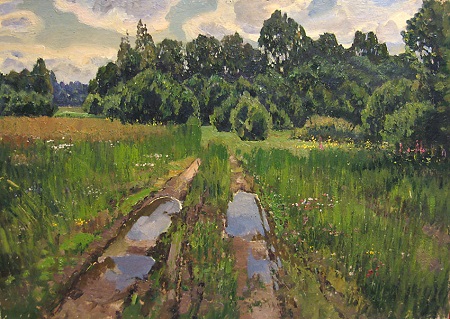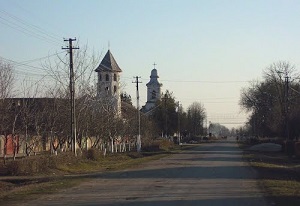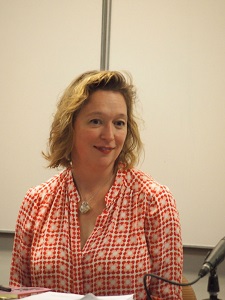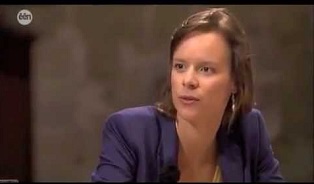De Amerikaanse schrijver publicist, essayist Elwyn Brooks (E.B.) White werd op 11 juli 1899 geboren in Mount Vernon, New York, als zoon van een pianohandelaar. White studeerde kunstgeschiedenis aan de Cornell-universiteit te New York. Na zijn studie werd hij journalist en redacteur bij diverse bladen en kranten, vanaf 1925 bij het bekende tijdschrift The New Yorker, waar hij naam maakte met uiterst gevarieerde essays, satirische bijdragen en commentaren. White had ook veel succes als schrijver, voor volwassenen (onder andere schreef hij het Freudiaans-satirische Is Sex Necessary? Or, Why You Feel the Way You Do, 1929), maar vooral als auteur van kinderboeken. Het meest bekend zijn “Charlotte’s Web” (1952, over de vriendschap tussen een varkentje en een spin op een boerderij) en “Stuart Little” (1945, over een muisje geboren uit menselijke ouders). “Charlotte’s Web” (1973) en “Stuart Little’ (2000) werden beide succesvol verfilmd. White kreeg in 1978 de Pulitzerprijs voor zijn volledige oeuvre. Hij overleed in zijn eigen huis na een lange strijd tegen de ziekte van Alzheimer.
Uit:Charlotte’s Web
“I’m staying right here,” grumbled the rat. “I haven’t the slightest interest in fairs.”
“That’s because you’ve never been to one,” remarked the old sheep . “A fair is a rat’s paradise. Everybody spills food at a fair. A rat can creep out late at night and have a feast. In the horse barn you will find oats that the trotters and pacers have spilled. In the trampled grass of the infield you will find old discarded lunch boxes containing the foul remains of peanut butter sandwiches, hard-boiled eggs, cracker crumbs, bits of doughnuts, and particles of cheese. In the hard-packed dirt of the midway, after the glaring lights are out and the people have gone home to bed, you will find a veritable treasure of popcorn fragments, frozen custard dribblings, candied apples abandoned by tired children, sugar fluff crystals, salted almonds, popsicles,partially gnawed ice cream cones,and the wooden sticks of lollypops. Everywhere is loot for a rat–in tents, in booths, in hay lofts–why, a fair has enough disgusting leftover food to satisfy a whole army of rats.”
Templeton’s eyes were blazing.
” Is this true?” he asked. “Is this appetizing yarn of yours true? I like high living, and what you say tempts me.”
“It is true,” said the old sheep. “Go to the Fair Templeton. You will find that the conditions at a fair will surpass your wildest dreams. Buckets with sour mash sticking to them, tin cans containing particles of tuna fish, greasy bags stuffed with rotten…”
“That’s enough!” cried Templeton. “Don’t tell me anymore I’m going!”
(…)
“This is a very serious thing, Edith,” he replied. “Our pig is completely out of the ordinary.” “What’s unusual about the pig?” asked Mrs. Zuckerman, who was beginning to recover from her scare. “Well, I don’t really know yet,” said Mr. Zuckerman. “But we have received a sign, Edith—a mysterious sign. A miracle has happened on this farm. There is a large spider’s web in the doorway of the barn cellar, right over the pigpen, and when Lurvy went to feed the pig this morning, he noticed the web because it was foggy, and you know how a spider’s web looks very distinct in a fog. And right spang in the middle of the web there were the words ‘Some Pig.’ The words were woven right into the web. They were actually part of the web, Edith. I know, because I have been down there and seen them. It says, ‘Some Pig,’ just as clear as clear can be. There can be no mistake about it. A miracle has happened and a sign has occurred here on earth, right on our farm, and we have no ordinary pig.” “Well,” said Mrs. Zuckerman, “it seems to me you’re a little off. It seems to me we have no ordinary spider.” “Oh, no,” said Zuckerman. “It’s the pig that’s unusual. It says so, right there in the middle of the web.” “Maybe”
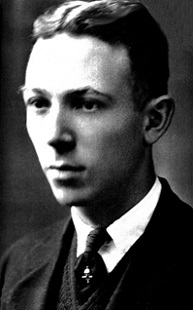
E.B. White (11 juli 1899 – 1 oktober 1985)
